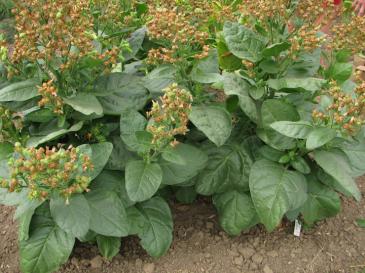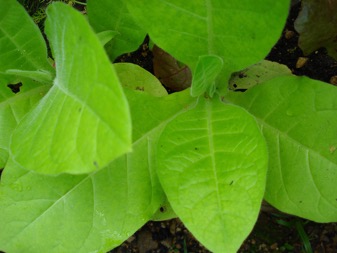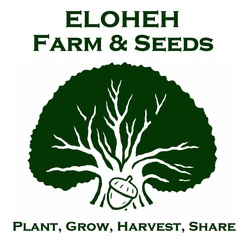|
|
More About Our SeedsShipping only $5.00 for most small orders.
|
GOOD HEALTH FROM SEED TO TABLE!
Because Eloheh Farm, where Eloheh Seeds are grown, is a 501(c)3 non-profit Teaching Farm, we want to share basic food information with you to be sure you understand the care we take and the quality of seed we produce. Factory farming, a result of the Industrialization Movement, has enabled large corporations to dictate many of the laws that affect our food and health today. Pesticides, herbicides and other chemicals are found in most industrialized agriculture today, which means in most cases, when we purchase and eat vegetables and fruits as frozen, in cans, or in the produce section of our local grocery stores, we are likely poisoning ourselves and our families! Additionally, there are now "Frankenstein" vegetables whose dna has been unnaturally altered. Genetically Modified foods (GMO or GE) are outlawed or strictly regulated in more than 60 other nations, including France, Germany, Japan, Australia, Russia, China and the United Kingdom. Powerful factory farming seed and chemical companies now spend millions against mandatory labeling of foods in the U.S. to keep us in the dark. These global corporations patent to own ancient seeds that have been free for hundreds and even thousands of years until now. In our small way, we are fighting such efforts by offering the public good seed. |
Read more about our seeds in each category below and order from here!
VegetablesAll of our vegetables varieties are open-pollinated, and the seeds were organically-grown. Everything here will thrive in the Pacific Northwest, and most of it will do well elsewhere. In our seed-saving we have been selecting for winter-hardiness, drought tolerance, shape, size, color, and — of course — flavor!
Eloheh Seeds are free of negative outside influences like pesticides, herbicides, and Genetically Engineered technology. They are free to be grown again by you as you harvest them from your own plants, literally "freeing the seed" to become what it is meant to be. Did you know each generation you choose the best of your plants for seed they take on more of the compounds of your own soil and adapt to your own soil and environment? Welcome to the "seed revolution!" |
Herbs
|
Staple CropsStaple Crops like grains, beans, seeds and nutmeats, comprise the majority of caloric intake for most humans. Vegetables and fruits make up only 10-15% of a typical diet. Truly independent and sustainable living for any community is impossible if it relyies on globalized, petroleum-based agribusiness for its Staple Crops. Yet their are challenges. One needs enough land to grow a decent amount, enough labor to process it, and enough space to store it. Still, we believe that attempts to gain Staple-independence are worth it. A seed packet might seem like a small amount to start with, but you can expect to increase your seed by 5 to 100x each season, depending on the crop. To understand which of these are best for your particular farm let us know if we can help with answers.
. |
FlowersA flower, sometimes known as a bloom or blossom, is the reproductive structure found in flowering plants. Everyone enjoys their beauty but they are also great pollinators, attracting various bees, butterflies and hummingbirds. Many flowers are functional, like the Marigold, which helps reduce pests from your garden, but hey, flowers are such a joy unto themselves, they need no further explanation. Their beauty, if spoken of in words, can best be described through poetry.
“When you have only two pennies left in the world, buy a loaf of bread with one, and a lily with the other.” (Chinese Proverb) “Bread feeds the body, indeed, but flowers also feed the soul.” (The Koran) “I’d rather have roses on my table than diamonds on my neck.” (Emma Goldman) “All the flowers of all the tomorrows are in the seeds of today.” (Indian Proverb) |
Wild Growing
|
Nicotineas and
|









